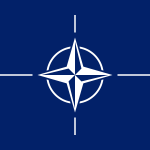The UK and the US has promised to fight to defend Latvia or Estonia. That is exactly what it means to be part of NATO. It is an alliance in which ‘an attack on one is an attack on all.’ American and British soldiers could be sent to fight and die to defend a country one thousand – or even three thousand – miles from their borders. But last week one of my colleagues said: “I don’t think I can sell that to my constituents. They can understand that we need a military to protect them against a terrorist bomb in the streets of Birmingham. But I can’t convince people to risk their lives to defend Eastern Europe against Russia.” This is an increasingly common position. And you can see where it comes from. For a decade or more, politicians have argued that the greatest security threat we face is Islamist terrorism. They made this the central justification for the over one trillion US dollars spent by the US and its allies in Afghanistan (and to a lesser extent, Iraq). In the words of Gordon Brown “There is a chain of terrorism that goes from Afghanistan to the streets of Britain.”
But NATO was not created to protect our homelands against terrorism. It was created to protect allies in Europe. In both the First and Second World Wars Britain and the United States overcame the temptation to remain isolated from continental Europe, and instead sacrificed on an extraordinary scale, fighting for and in Europe. After the Second World War leaders such as Ernie Bevin, the British Foreign Secretary who proposed NATO, or George Kennan, the American architect of containment, took it almost for granted that it was worth fighting far from their own shores to protect the freedom and civilisation of other European countries, and particularly democracies. It was because of this world view that the United States spent billions through the Marshall Plan rebuilding the European economies in 1947. When Europe itself proved unwilling to pay the price for its own Defence, the United States decided to subsidise it. It spent trillions on weapons and aid and deployed hundreds of thousands, and built tens of thousands of nuclear warheads to protect Western Europe from invasion. Our astonishingly expensive kit – submarines, destroyers, tanks, and above all nuclear weapons – was not intended to fight terrorists, or conduct humanitarian interventions. (A submarine is not much use against a terrorist).
But by the 1990s the world and our values had changed. The Soviet Union had collapsed. Russia seemed very weak, and it was assumed that ultimately Russia and China too would ‘evolve’ into liberal democracies without using military force on their neighbours. Central and Eastern Europe had become democratic. Peace in Western Europe seemed assured. Trouble was expected now to come, if not from terrorists, then from weaker, poorer and wilder states. These were a source of instability and concern, but no remote conventional threat to the survival of Western states. And when Poland, Latvia, Lithuania and Estonia applied to join NATO because they felt their only hope of developing democratic institutions was to be given an absolute guarantee against aggression from the East, we promised them that protection. It was easy to promise protection when no-one ever expected to have to honour that promise. We still kept submarines, and nuclear missiles, and NATO, but we did not think we might use such things.
Today, Russia and China are spending hundreds of billions upgrading their militaries, and investing particularly heavily in their nuclear capability. Crimea has been annexed; the Baltic states and Poland are nervous. The United States has committed an immediate billion dollars to reinforcing defences in Eastern Europe. It looks like a return to the Cold War. But our values and assumptions have changed. My 92-year-old father, who landed on the D-Day beaches and spent most of his career caught up in the Cold War, still believes that we kept peace by preparing for war; that we never had to fight a European conflict, because our enemies believed that if they invaded we would take the immense risk of firing our nuclear missiles in defence of our allies.
But how would we convince the next generation to do the same? We are more cynical now than the architects of NATO about concepts like ‘democracy’ ‘liberty’ or ‘European civilisation’. And the failures in Iraq and Afghanistan make us more so. The use of war, and even nuclear war, seemed plausible options to an earlier generation in a way that it is not to us today. How do we justify the world order, or defend it? My colleague suggests that the American and British public can now only understand defence against ‘bombs in the streets of Birmingham’, and no longer believes in larger alliances, and international commitments. If this is true – and it may be – our relationship to Russia, to China, to our allies, and the whole idea of ‘policing’ a world order, has been utterly changed. And we have not begun to imagine the consequences for our defence and security.






